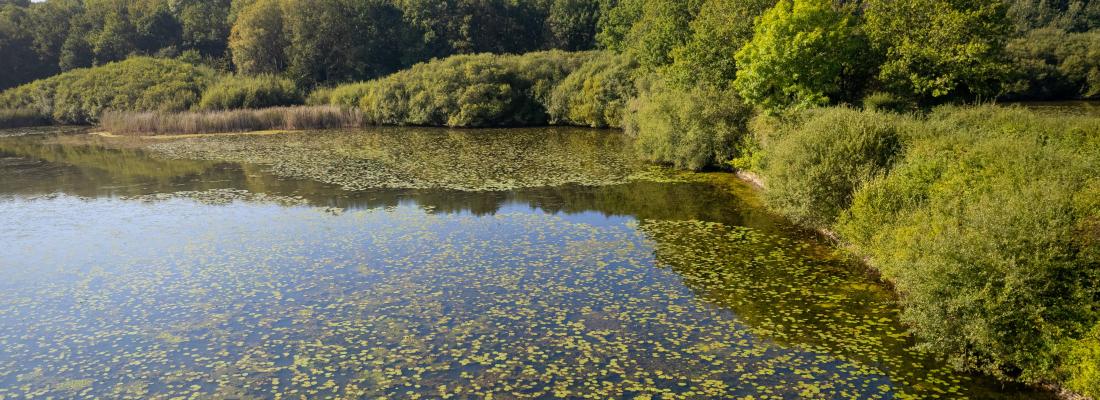Climate change and risks Reading time 3 min
Warming and nutrient enrichment: the combined effects on freshwater systems
Published on 12 August 2024

Freshwater ecosystems are subject to multiple stressors from human activities. In Europe, only 38% of freshwater ecosystems remain in good chemical condition, and only 40% are in good ecological condition[1].
Populations of migratory freshwater fish—salmon, trout, eels, etc.—have fallen by more than 80% since 1970[2]. Lakes have become major climate traps for fish, making it impossible for them to migrate. Additionally, in France, around 30,000 structures—dams, bridges, etc.—disrupt migration along rivers and streams.
These constraints make freshwater fish particularly vulnerable to stress factors, including eutrophication—an excess of nutrients in aquatic environments—and rising water temperatures linked to climate change.
Until now, little research had been carried out at community levels to study the effects of these two factors, much less together. Against this background, scientists from INRAE, the University of Oxford, the University of Sheffield and the University of Savoie Mont Blanc have undertaken research aimed at understanding how these two factors affect the structure of freshwater food-webs, which is essential for maintaining well-functioning ecosystems.
256 lakes and 373 rivers sampled over 10 years
Researchers drew on data collected over more than 10 years as part of the water monitoring programmes made mandatory by the Water Framework Directive. No fewer than 256 lakes and 373 streams were sampled, gathering information on fish (size, number, species) and water quality (temperature, organic matter content).
Using a mathematical model based on the size of freshwater fish and species diet data, the research team reconstructed the food-webs in each site. The researchers then used statistical models to test the additive or interactive effects of water temperature and organic matter content (an indicator of nutrient enrichment) on the structure of the food-webs.
Stronger combined effects
The results indicate that the combined effects of warming and nutrient enrichment are more significant than the individual effects all together. In tandem, these stressors lead to the simplification of freshwater food-webs. Lakes and streams with higher temperatures and higher nutrient enrichment result in less complex food-webs, in particular by losing predators at the top of the food chain. One hypothesis to explain this loss is the lack of oxygen often found in these rich, warm aquatic environments, to which apex predators are most sensitive.
These findings are crucial for managing and conserving freshwater ecosystems, as they demonstrate that climate change is likely to significantly worsen the state of freshwater ecosystems, already degraded by nutrient enrichment. The study also highlights the importance of addressing the impacts of these two factors in tandem, in order to preserve the complexity of food-webs. This complexity is essential for the proper functioning of ecosystems, for example, for the circulation of matter and energy and the regulation of water quality.
[1] European Commission (2021). The 6th Water Framework Directive and Floods Directive Implementation Report. https://environment.ec.europa.eu/publications/6th-water-framework-directive-and-floods-directive-implementation-report_en
[2] Deinet S., Flint R., Puleston H. et al. (2024) The Living Planet Index (LPI) for migratory freshwater fish 2024 update - Technical Report. World Fish Migration Foundation, The Netherlands.
